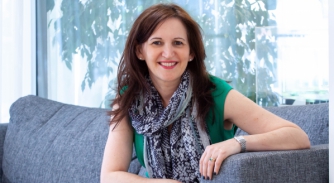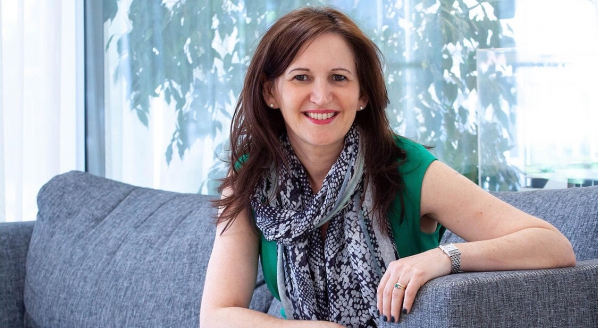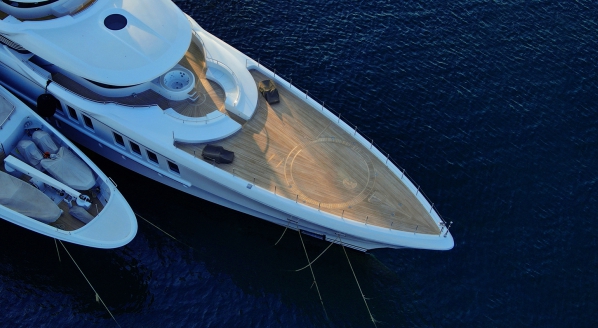The true value of recruitment
Malcolm Jacotine, Founder of OnlyCaptains.com, discusses the need to increase the standard of recruitment…
If a large company were to look for a new CEO, the process of recruitment would justifiably be a months-long, extensive and arduous process involving an executive search company. So, why is it that in the superyacht industry a captain should be hired after a look at a couple CVs, a quick reference check and an interview?
There is no exclusive pathway to securing a job in the superyacht industry. Advertising on social media groups, posting on job boards, and, more traditionally, the word of mouth method, is an engrained part of the recruitment process for both employees and people looking for work. The amount of people involved in both management and recruitment has also seen a steep increase in the last decade, creating what some would argue to be an overpopulated space in the market.
Malcolm Jacotine, CEO of OnlyCaptians.com, believes the value of extensive research on potential candidates is often overlooked by recruiters,
“The whole process has become a little bit diluted because of the number of people involved, which in some cases, has probably created a bit of a race to the bottom in terms of cost performance.”
Jacotine went on to explain how, “The difference between recruitment company A and recruitment company B isn’t always very obvious, and that may be down to the experience of staff that the recruitment companies are using, there is a certain breed out there that are mostly interested in volume. A quick search through their database and then they are firing off as many CVs as possible to the client on the basis that if one of those candidates has been chosen, irrespective of whether the work to qualify that candidate has been done, they will then claim the commission as the company who presented the candidate first.”
What this then creates, is a lowering of the overall standard of the recruitment sector of the industry. Thus, the recruitment agencies become at risk of being tarnished with the same brush by captains and owners. The consequences of poor recruitment on-board a superyacht can be extremely costly, not just for the physical health and safety of the yacht itself, but it could also create an unhealthy crew environment which leads to further loss of employment. With the stakes so high, should the market push harder towards ensuring a more rigorous recruitment standard as a necessity?
Jacotine explains: “The challenge for professional recruiters is to be able to get in front of a captain or a decision maker and prove that there is worth in what they can do in the process. That they offer something different.” This in turn has led to recruitment agencies providing personality tests, which Jacotine brushes aside,
“Recruitment companies who are using psychometric testing, are probably using personality tests which aren’t really fit for purpose in the process of recruitment.”
The most popular personality test of all, the Myers Briggs Test, was recently criticised by top chartered occupational Psychologist, Dr Angelina Bennet. In an interview with Business Insider, Dr Bennet argued that the test should never be used for employment purposes. While Jacotine also views such tests as “mostly gimmicks”, he does also believe that the superyacht industry can gain insight through adopting recruitment techniques used in commercial maritime industries.
“Safety orientated companies such as tankers and gas carriers are actually using a more robust type of psychometric testing to evaluate and assess candidates,” he says. “The commercial shipping industry is more risk averse, especially when you're looking at passenger ships and the number of people being carried by enormous vessels. The implications of having a safety issue are huge.” With the 80m plus market growing at an exponential rate, the commercial industry may already be able to provide some of the answers to the questions cropping up in the private sector.
Improvements to education and training resources could also provide the industry with a larger pool of viable candidates. The practical hands-on nature of working on a superyacht means that, while many may look good on paper, the realities of their knowledge and experience is actually limited. Do training courses provide the necessary qualifications for the superyacht industry? Perhaps not. One could argue not many ‘hereos’ are produced by the zero to hero training programmes found in various locations globally.
It is a sentiment which is shared by Jacotine, “With the way that the industry has progressed, with larger yachts, greater asset values, more crew, more passengers, and still, training courses are still fundamentally based on a recreational boater’s qualification. You have to ask yourself why is it that we still need certain qualifications for yachting when the commercial industry, who are trained to a much higher level, have never found the need for them.”
In essence, it appears that while certain sectors of the industry are evolving at a rapid pace, others are being left behind, or becoming diluted. Indeed, there is great value in digital spaces creating a more connected environment and it is important that a space for quick, easy and cheap recruitment has been filled. But are they creating a vacuum for the space occupied by meticulous and diligent recruiters who are now few and far between.
Profile links
NEW: Sign up for SuperyachtNewsweek!
Get the latest weekly news, in-depth reports, intelligence, and strategic insights, delivered directly from The Superyacht Group's editors and market analysts.
Stay at the forefront of the superyacht industry with SuperyachtNewsweek
Click here to become part of The Superyacht Group community, and join us in our mission to make this industry accessible to all, and prosperous for the long-term. We are offering access to the superyacht industry’s most comprehensive and longstanding archive of business-critical information, as well as a comprehensive, real-time superyacht fleet database, for just £10 per month, because we are One Industry with One Mission. Sign up here.
Related news

Best kept secret
Laurence Lewis, President of YPI Crew, on how best to work with recruiters when hiring yacht crew
Crew

The impact of COVID-19 on crew recruitment in 2020
Laurence Lewis, director of YPI Crew, on the effects COVID-19 and her predictions for the year ahead
Crew

SYR: recruiting for the shoreside superyacht sector
The founder of recently-launched SYR discusses the challenges recruiting for shore-based roles presents
Business

Improving recruitment efficiency within the superyacht sphere
Yotspot announces a new layer of technology to its online yachting application process
Crew

From on board to onshore
The first month-long virtual event to help superyacht crew who are ready to move on to land-based businesses
Crew

What is the status of the superyacht crew employment market?
SuperyachtNews speaks to Sara Beecher, Crew Consultant at 19 Yacht Crew
Crew
NEW: Sign up for
SuperyachtNewsweek!
Get the latest weekly news, in-depth reports, intelligence, and strategic insights, delivered directly from The Superyacht Group's editors and market analysts.
Stay at the forefront of the superyacht industry with SuperyachtNewsweek




